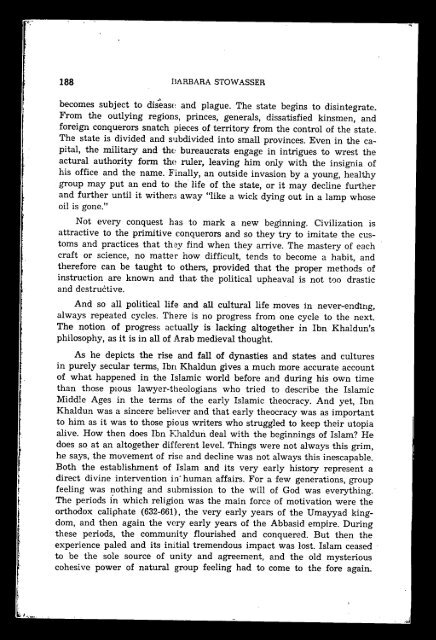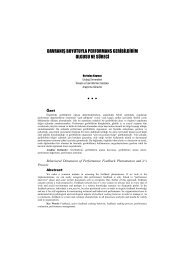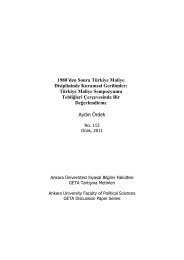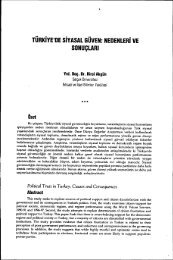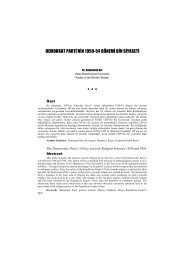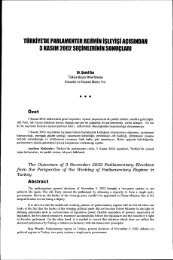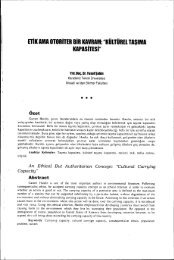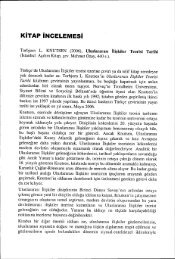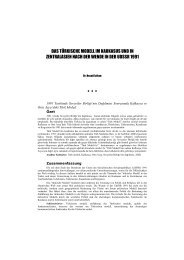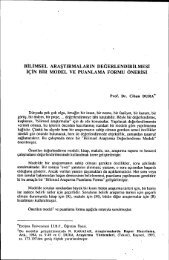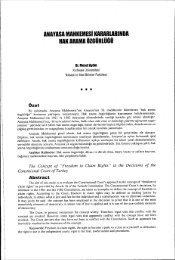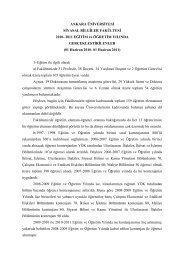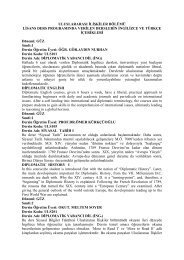ıBN KHALDUN'S PHILOSOPHY OF HISTORY: THE RISE AND FALL ...
ıBN KHALDUN'S PHILOSOPHY OF HISTORY: THE RISE AND FALL ...
ıBN KHALDUN'S PHILOSOPHY OF HISTORY: THE RISE AND FALL ...
Create successful ePaper yourself
Turn your PDF publications into a flip-book with our unique Google optimized e-Paper software.
188 BARBARA STOW ASSER..•.becomes subject to diseasf~and plague. The state begins to disintegrate.From the outlying regions, princes, generals, dissatisfied kinsmen, andforeign conquerors snatch pieces of territory from the control of the state.The state is divided and subdivided into smaIl provinces. Even in the capital,the military and the bureaucrats engage in intrigues to wrest theactural authority form the ruler, leaving him only with the insignia ofhis office and the name. Finally, an outside invasion by a young, healthygroup may put an end to the life of the state, or it may decline furtherand further until it wither;~away "like a wick dying out in a lamp whoseoil is gone."Not every conquest has to mark a new beginning. Civilization isattractive to the primitiye conquerors and so they try to imitate the customsand practices that thi~y find when they arriye. The mastery of eachcraft or science, no matter how difficult, tends to become a habit, andtherefore can be taught to others, provided that the proper methods ofinstructionare known and that. the political upheaval is not too drasticand destructive.And so all political life and all eultural life moves in never--endlng,always repeated eycles. There is no progress from one eycle to the next.The notion of progress aetually is laeking altogether İn Ibn Khaldun'sphilosophy, as it is in all of Arab medieval thought.As he depiets the rise and fall of dynasties and states and eulturesin purely seeular terms, Ibn Khaldun gives a much more aeeurate aecountof what happened in the Islamie world beforeand during his own timethan those PlOUS lawyer-theologians who tried to deseribe the IslamieMiddle Ages in the terms of the early Islamic theocraey. And yet, IbnKhaldun was asincere' belif!\'er and that early theocracy was as importantto him as it was to those pious writers who struggled to keep th'eir utopiaalive. How then does Ibn Khaldun deal with the beginnings of Islam? Hedoes so at an aıtogether different leveL.Things were not always this grim,he says, the movement of rise and decline was not always this ineseapable.Both the establishment of Islam and its very early history represent adirect divine interventian in' human affairs. For a few generations, groupfeeling was nothing and submission to the will of God was everything.The periods {n which religion was thernain force of motivation were theorthodox ealiphate (632-661),the very early years of the Umayyad kingdom,and then again the very early years of the Abbasid empire. Duringthese periods, the eommunity flourished and eonquered. But then theexperience paled and its initial tremendous impact was lost. Islam eeasedto be the sole source of unity and agreement, and the old mysteriouseohesive power of natural group feeling had to eome to the füre again.


